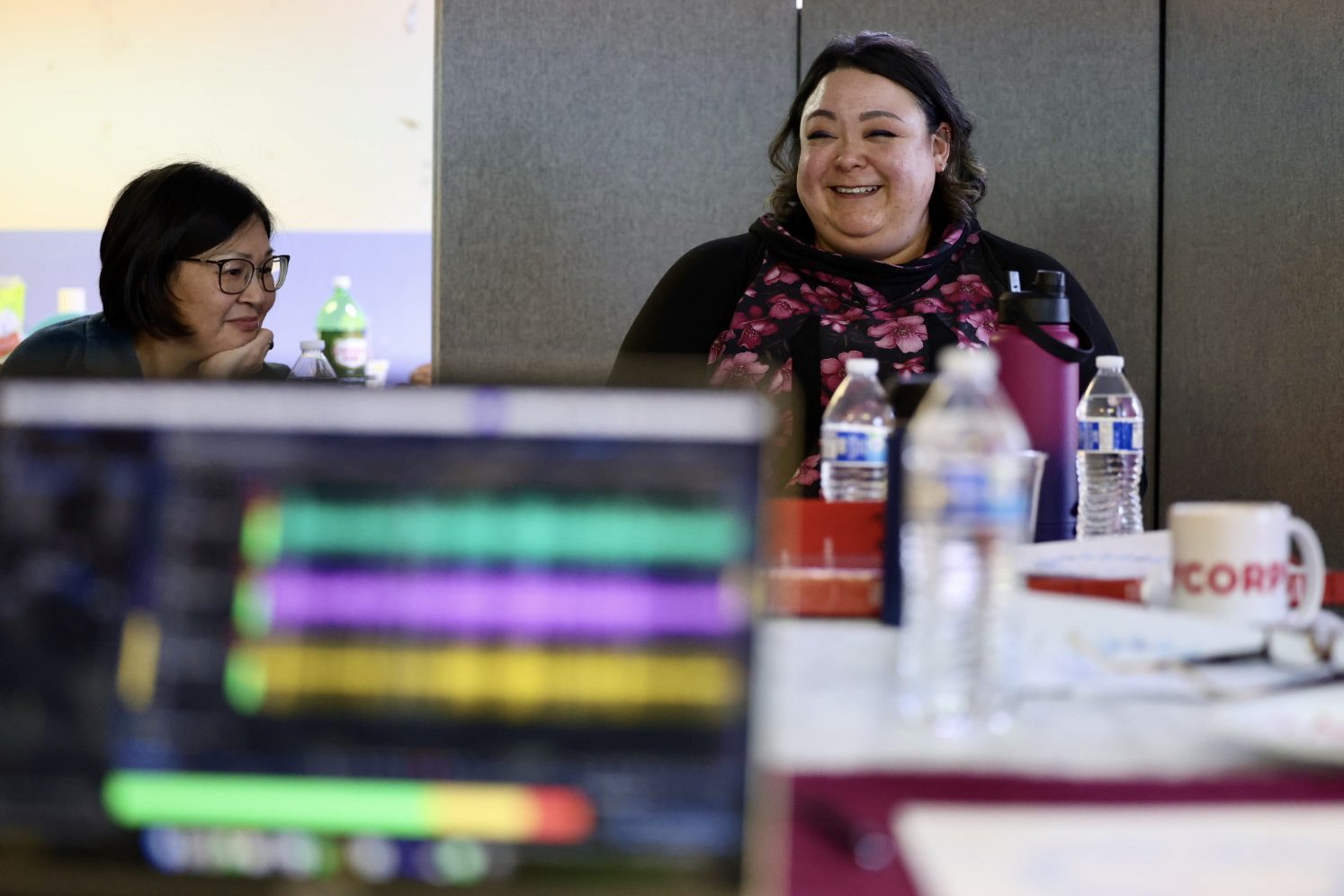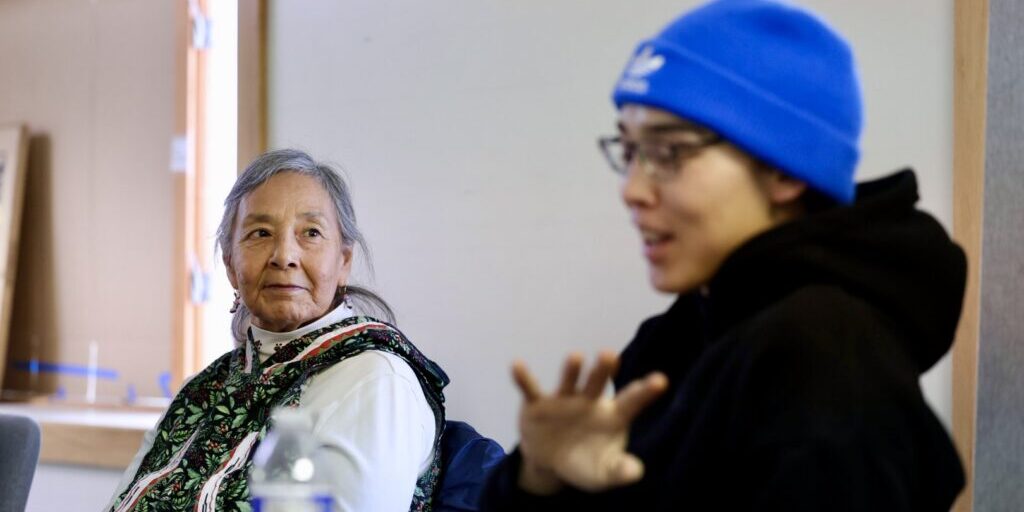Seven Indigenous language speakers gathered two weekends ago for a roundtable discussion in Nome. The collaboration is part of a new project by KNOM that seeks to recognize and celebrate the nuances in the many dialects and languages found in western Alaska.
“Quyanna for coming, I really appreciate all of you taking your Saturday to be here with us. Our language is diminishing quickly, and we would like for you to share your knowledge, your words, in your language,” KNOM’s Sophie Tocktoo began.
Six women and one man sat around cloth-covered tables on the second floor of KNOM’s station in Nome. Each were given a chance to introduce themselves in both English and their native tongue. The group included speakers of Yup'ik, Inupiaq, and Siberian Yupik. As is tradition, they shared where they’re from and who their parents are.
After introductions, the speakers were invited to participate in a new video project called “Living Legacies” that highlights the different words and pronunciations of common terms and phrases. The recordings took place in KNOM’s newsroom under the bright glow of studio lights. As Inupiaq speaker Josie Bourdon shared, sometimes there’s more than one way to say a word.
“Quyanna, and taikuu. Two ways to say thank you. Quyanna. Taikuu,” Bourdon said.
Back upstairs, the group took turns sharing how to count to ten, different colors, phrases, and short sentences in their respective languages. But the discussion often drifted into an informal conversation as friends old and new shared words and stories.
“Akiikaa, some dialects will use ‘aarigaa’. Like when little kids do something that’s real cool you say ‘akaa’. Or they bring a whole pile of fish,” Gail Smithhisler said.
“Or when it’s too much even,” Tocktoo added.
“Akaa!” the group said in unison while laughing.

Despite their differences, the group found they had many things in common. They discovered that directions were more or less the same across each of their languages, something they attributed to the need for hunters across the region to easily share information.
As the roundtable winded down, the speakers shared closing thoughts on the informative afternoon.
“The best part is having to see different age groups, your enthusiasm, and what your take from this gathering. Just hearing the commonalities of our languages. We have the same hearts, everyone of us here in this room," Annie Conger shared.
Conger explained the unique connection Indigenous languages provide for its speakers.
“The language is going to come with you, it's going to be you, its gonna be your life, it's part of you, it’s our culture, its our identity. This is the beauty of it. Having a group of people come together and work together," Conger said.
The roundtable wrapped up around 4:00 p.m, with half of the participants boarding flights to return to their homes in Stebbins, Savoonga, and Fairbanks shortly after.
KNOM Radio Mission extends its heartfelt appreciation to the participants of the project:
- Barbara Alowa-Gologergen
- Christina Alowa
- Gail Smithhisler
- Josie Bourdon
- Annie Conger
- Martin Paul
- Rebecca Atchak




